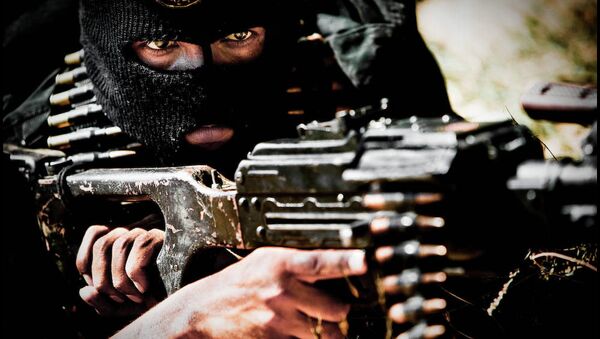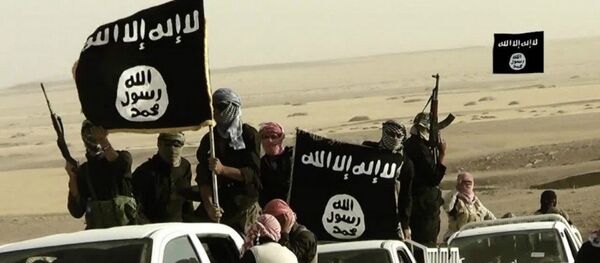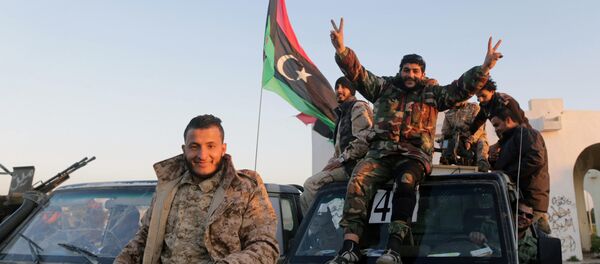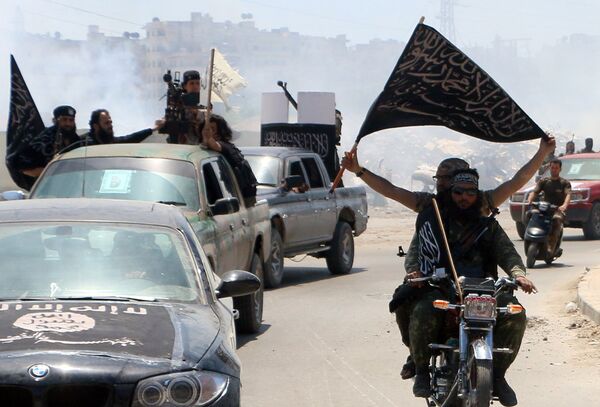Minister Mahdi Barghathi, an early convert to the rebel side in the Libyan Civil War, claimed the effort was being spearheaded by Mokhtar Belmokhtar, the infamous one-eyed Al-Qaeda leader in Algeria who is one of the world's most wanted men.
Al-Qaeda and Daesh are "actively co-operating" Barghathi said in an interview — the pair "have never attacked each other" in Libya, and there was evidence to suggest the duo were now "actively cooperating." Al-Qaeda is said to be providing logistics and support, in order to assist Daesh in regrouping launching new attacks.
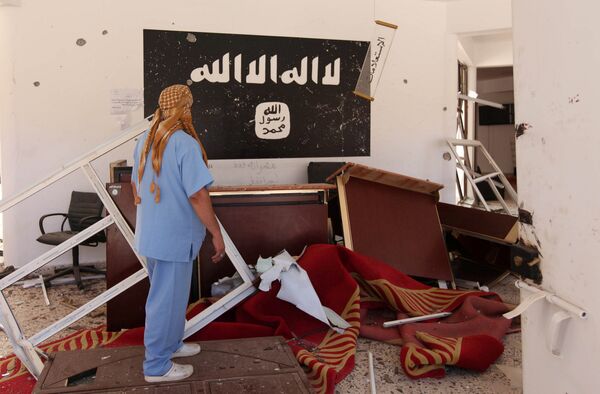
The unholy alliance between the world's two most prominent Islamist terror groups in Libya will naturally be a cause for significant concern across both North Africa and Europe, but it is also puzzling — after all, already frayed public tensions between the group further worsened in 2016, with Al-Qaeda chief Ayman Al Zawahiri virulently condemning Daesh's brutal methods, branding the group "liars."
Why Libya?
For political analyst Loretta Napoleoni, Daesh's attraction to Libya is unsurprising. 'Operation Unified Protector', the 2011 NATO intervention led by the US, UK and France that ensured the overthrow of leader Muammar Mohammed Abu Minyar Gaddafi, threw the country into a state of "fragmented, fractured" chaos, from which it has never recovered.
As a recent European Union report acknowledged, Libyan society is comprehensively blighted by security issues, with "carjackings and shootings" in broad daylight, and human rights defenders, journalists and judges under constant threat of kidnapping and death.
Libya: Whipped, Beaten, and Hung from Trees http://t.co/Q5tGhjJJxX pic.twitter.com/pKE4ji9z7u
— Human Rights Watch (@hrw) June 23, 2014
Libya's militia-riddled government has little control over urban areas, and rarely dares step foot in the country's sprawling desert regions — as such, it's an "ideal terrain for relaunching the caliphate."
"Libya's not densely populated, its military is poor, and most of its territory is essentially desolate — it's a perfect hiding place," Ms. Napoleoni told Sputnik.
What's more, she says, the likelihood of another Western intervention in the country is very low. While Daesh is being "hammered" by Russia in Iraq and Syria, there's little risk of that coming to pass in their new home.
Libya is also a potential financing source for the group. West and North Africa in general, and Libya in particular, are key transit points for the export of all manner of illicit commodities into Europe — stolen oil, gold, arms drugs and even people in the form of refugees. Such trade is "rampant" in today's Libya, she says, and Daesh can economically sustain itself by taking over its administration.
Good Enemies, Better Friends
Western intervention in Libya is also a major factor behind the alliance between Al-Qaeda and Daesh, she believes. For one, without a shared foe to unify them, tensions between Islamist groups "would've erupted" — instead, they have united behind a common cause.
It's not the only driving force — the "success" of the caliphate in Iraq and Syria has likewise played a part, impressing al-Qaeda and attracting converts — but Ms. Napoleoni says a high degree of fluidity is becoming a key attribute of Islamist terror groups in any event.
"As we saw in Iraq and Syria, individuals move quite freely from group to group. There, people switched from al-Nusra to Daesh and back quite freely. Al-Nusra was until recently the Syrian branch of al-Qaeda, so this new alliance shouldn't be surprising," she adds.
Shared Roots
Daesh and al-Qaeda are also collaborating because they have much ideological common ground. This shouldn't be surprising either, Ms. Napoleoni says — both groups are to some degree a product of Western imperialism.
"The destabilization of the Middle East has created an ideal environment for these groups to flourish. If the West hadn't intervened, the situation there would be very different today," Ms. Napoleoni says.

Where the groups differ is in their objectives and tactics. Daesh is focused on creating a fundamental Islamic nation — al-Qaeda on attacking the West.
"Daesh are not stupid, and they know what they can and can't achieve. Carrying out attacks in the US and Europe is not on their agenda — so, while Libya is very close to Europe, Daesh won't be using Libya as a staging ground for strikes there," she says.
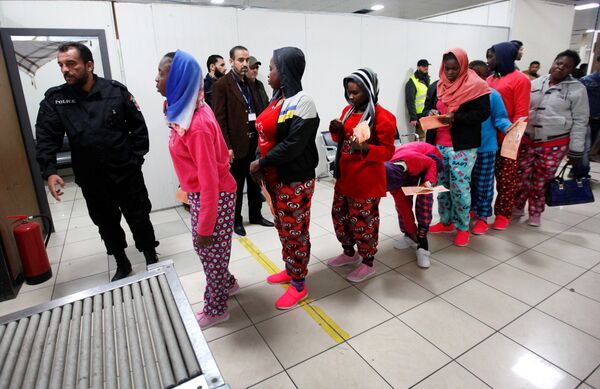
Nonetheless, Ms. Napoleoni continues, Daesh obviously believe the more Muslims there are in Europe the better, and have been giving migrants crash courses on Sharia before they leave.
"This is done in the hope that when migrants reach Europe, they'll feel disenfranchised by the xenophobic climate there, and become the next terrorists," Ms. Napoleoni told Sputnik.
A Spreading Trend
Now Daesh and al-Qaeda are united in Libya, Ms. Napoleoni believes local divisions of both groups in other countries will follow their lead. The end of these groups in Iraq and Syria is not the end of either in international terms.
"Daesh will rise and rise again, like a phoenix. If they're driven out of Libya, they'll pop up in Sudan. This will continue until a political solution is found — whether that will happen, and when, is highly uncertain. The only regional power even slightly amenable to a political resolution with Daesh is Russia — others are focused on trying to bomb the problem away," she concludes.

